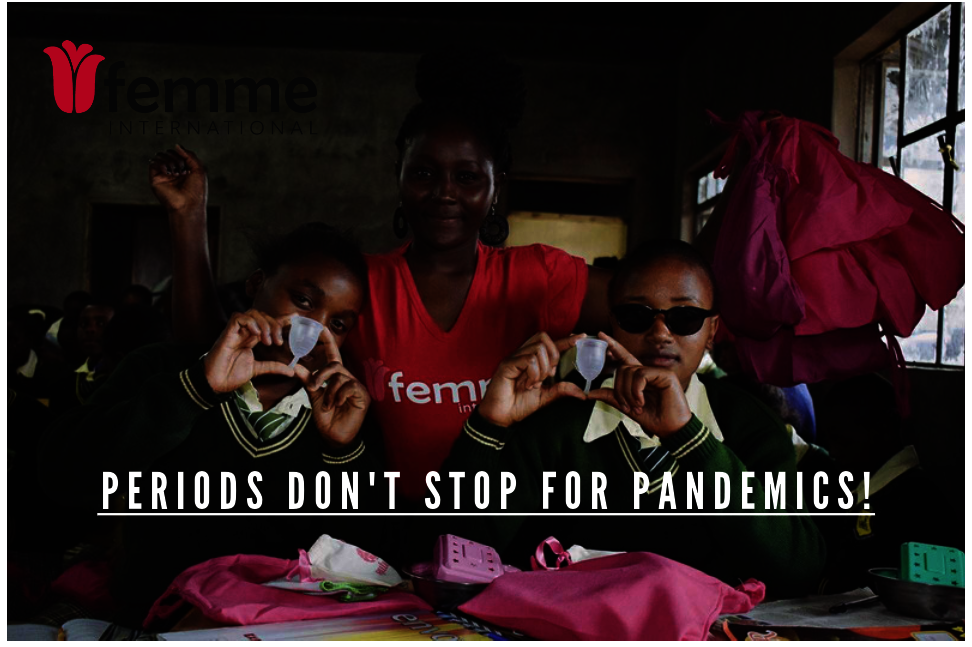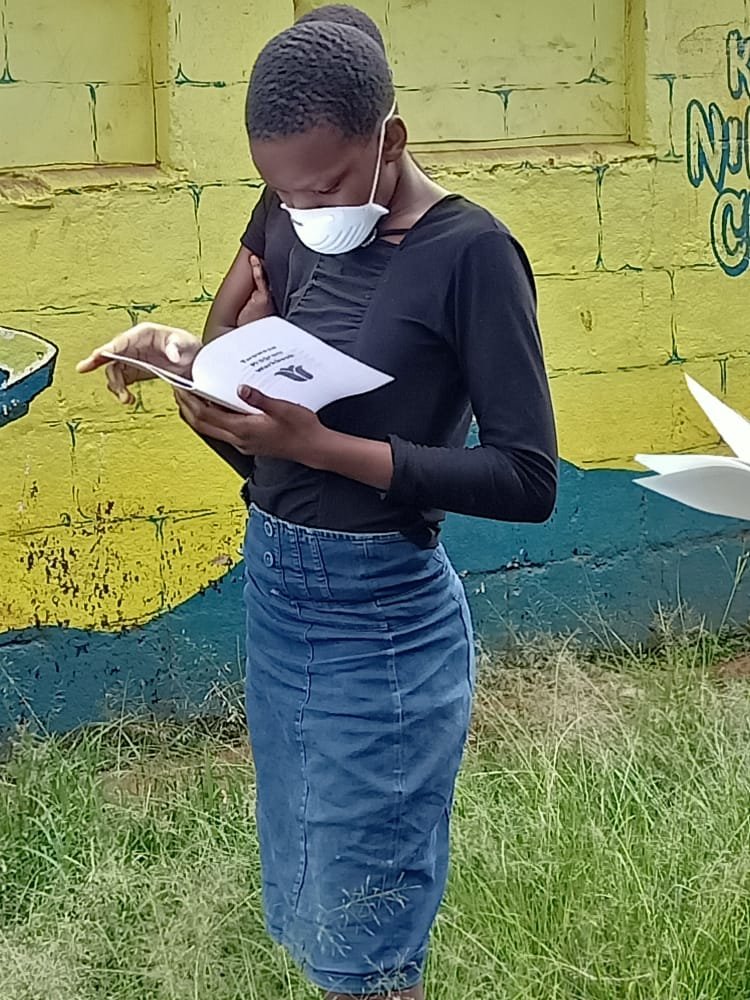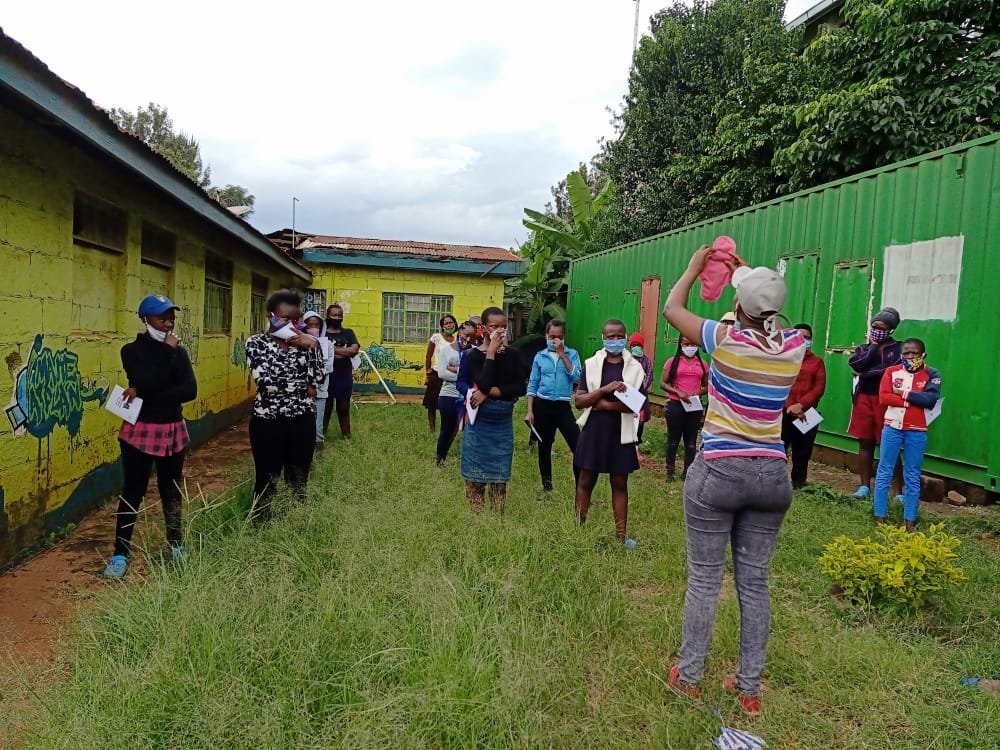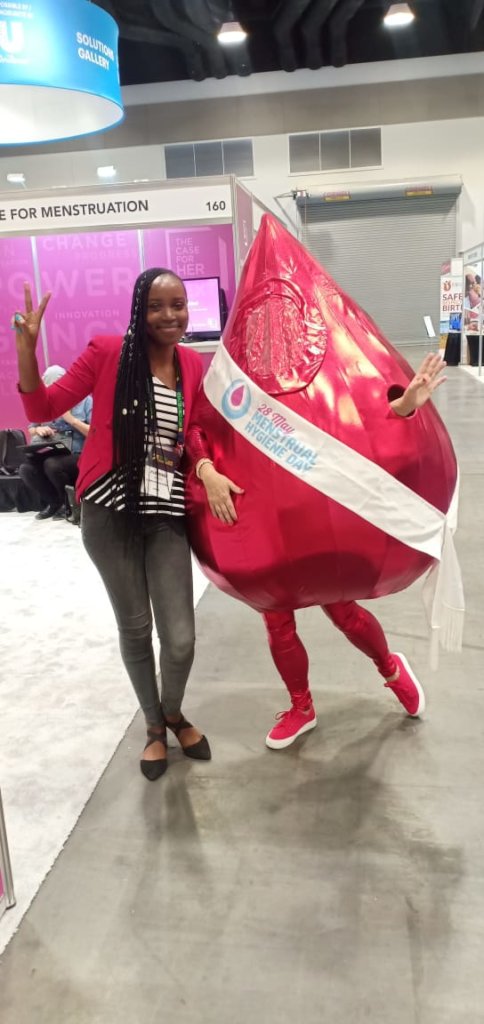By Florence Akara | Managing Director
The COVID-19 pandemic has been especially tough on us because not only is the core of our programming education, but, in order to serve the lowest-income menstruators, we rely on community gatherings and field trips to schools. In addition, these communities are usually remote/difficult to reach, and now impossible without exposing our staff or beneficiaries to the risk of infection.
In response to global efforts towards flattening the curve of the spread of the virus, the Femme team has been staying indoors brainstorming, and developing the Twaweza curriculum further for when schools re-open, as well as strategies for the way forward for our Twaweza and Twende programmes in case the lockdown lasts longer than the given estimated time-frame.
So far, we have managed albeit having very limited resources; including frequent power failures, poor or no internet connectivity, and old computers with faulty batteries or “fridges” as we refer to them jokingly for their lack to stay on without AC power supply. We, however, cannot ignore that the beneficiaries of the Twaweza programme most likely/do not have the option of connecting with us over various VoIP or other forms of internet/digital media. A pandemic like this doesn’t equalise; instead, it amplifies existing inequalities, and those struggling the most beforehand will be even harder-pressed as the situation continues. This applies to access to menstruation, particularly in rural East Africa where period poverty is prevalent!
For our beneficiaries, the situation is even more dire now. Manufacturers are making the decision to shut down, stocks quickly are depleting in shops, leaving many people jobless and increasingly desperate. For some people, every last penny becomes a decision on the magnitude which basic necessity can they do without. Menstruation is, however, not an option or choice, but a necessity and just like other necessary daily body/health care products and needs including water, food, and soap; access to products is vital for healthy and hygienic menstrual health management.
What Now? … We hosted our first/trial Post Corona Twaweza Session!
We remain dedicated, in spite of circumstances, to our cause to eradicating period poverty, the myths and stigma relating to menstruation. Consequently, we have been exploring ideas on how we can continue serving whilst safely adhering to the social distancing government regulations. Our workshops look quite different. Groups are smaller to enable the 2-metre physical spacing, and outside when the rains aren’t too severe. Workshop budgets now include soap and water and/or hand wipes for frequent hand-washing, and as hard as it is, we strictly avoid all handshakes.
The Femme Kits we hand out have always had a bar of soap included, which during this pandemic has become more valuable than ever. Help us continue the fight against #periodpoverty and Donate a Femme Kit today.
Follow us on Instagram, Twitter, Facebook and Linkedin and help spread the word #periodsdontstopforpandemics!
Check out our latest blog entries!
That’s all folks. With love from all of us at Femme international. #staysafe #alonetogether
Links:
Project reports on GlobalGiving are posted directly to globalgiving.org by Project Leaders as they are completed, generally every 3-4 months. To protect the integrity of these documents, GlobalGiving does not alter them; therefore you may find some language or formatting issues.
If you donate to this project or have donated to this project, you can receive an email when this project posts a report. You can also subscribe for reports without donating.
Support this important cause by creating a personalized fundraising page.
Start a Fundraiser


